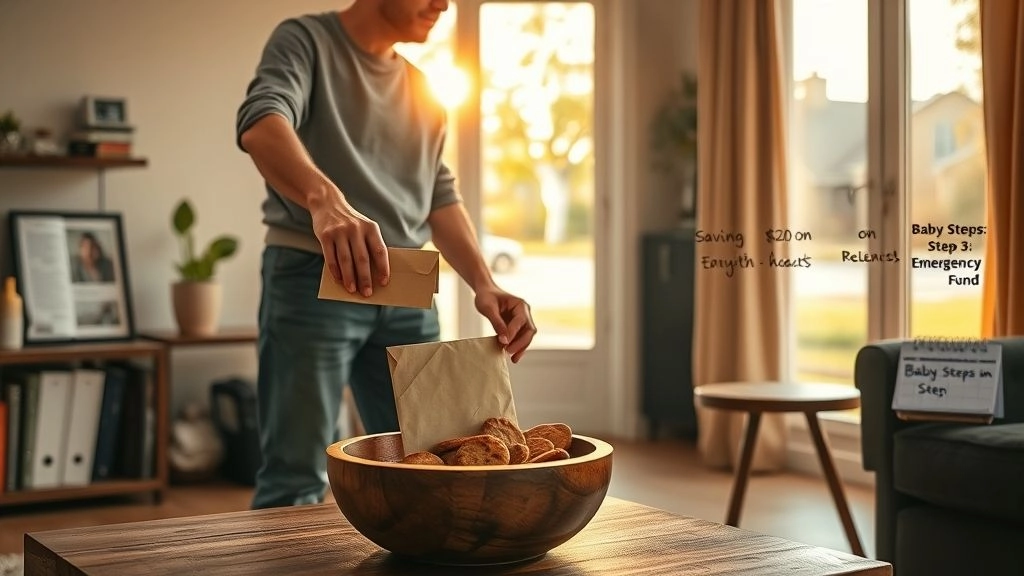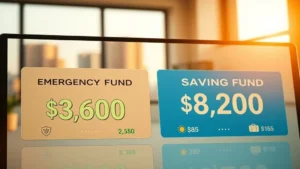Home Expenses Sneak Up
Let’s get honest for a minute—no one tells you how expensive it really is just to have a roof over your head until you’re standing in your new place, surrounded by cardboard boxes, and your jaw drops at the bills. I mean…rent looks harmless on a listing. Mortgage payments—even the word sounds grown-up. But the costs pile up fast and sometimes it feels like your wallet’s got a slow leak you can’t plug. Ever wondered why saving is so dang hard when housing gobbles up half your paycheck?
Here’s something I didn’t see coming when I first moved out: it wasn’t just rent chewing through my budget. Groceries cost more when you’re solo. Electricity bills? Oof. And don’t get me started on the surprise repairs (like the great faucet disaster of ’19). If you’re curious about what are some of the costs of living on your own?, trust me—it adds up fast, especially if you don’t have a plan. So, what’s all this have to do with generosity? Stick with me. It’s actually the secret heart of today’s story.
Rent, Own, and the Generosity Equation
Here’s the surprising connection: The more of your monthly cash you’re burning just to keep the lights on and the landlord (or bank) happy, the less you have left to…well, do anything else. Forget fancy shoes—I’m talking about being able to jump in and help someone in need. That’s right, your housing choices could be the “yes” or “no” when a friend calls in real trouble. Ever had that moment? You want to help… but you’re sweating your own rent next week? It stings.
Unseen Costs: Death by a Thousand Bills?
Let’s break it down real simple. Say you’re renting that “affordable” downtown apartment. The lease is manageable (ish), but then the extras roll in: $100 for parking, $150 for utilities (hello, ancient radiator!), renter’s insurance, and that time your toilet flooded… again (yep, you pay for part of it). Or maybe you bought a home thinking predictability was your friend. Mortgage locked in, but surprise—property taxes, HOA fees, leaky roof deductions, and “just-in-case” home insurance are all clamoring for attention.
| Monthly Cost | Typical Renter | Typical Owner |
|---|---|---|
| Base rent/mortgage | $1,200 | $1,300 |
| Utilities | $150 | $200 |
| Maintenance/repairs | $30 | $100 |
| Insurance/taxes/fees | $20 | $180 |
| Total | $1,400 | $1,780 |
Raise your hand if your “extra” money shrinks after all that. (Mine’s up…)
Ramsey’s Simple Path
So how does Dave Ramsey fit in? If you’ve listened to him—on the radio, podcast, or YouTube rants—you know he’s all about knocking out debt, getting your house in order before you think about giving the shirt off your back. “You can’t pour from an empty cup,” he likes to say (and yeah, I wish I’d believed him the first time I maxed my credit card to help a buddy and tanked my own groceries budget).
Baby Steps That Build Breathing Room
Ramsey’s famous for his Baby Steps—think of these as your money workout plan, with the promise you’ll come out the other side a whole lot more generous, and a whole lot less stressed. Why is it important to do the five foundations in order? Man, because running before you walk gets you flat on your face. You nail the first steps and suddenly urgent expenses (looking at you, broken heater) stop stealing cash you could use for actual, intentional kindness.
Quick refresher, in case you slept through Personal Finance 101:
- Step 1: Build a little emergency fund ASAP
- Step 2: Pay off all debts, smallest to biggest
- Step 3: Beef up that emergency fund to cover 3-6 months of expenses
- Step 4: Invest for the future (think retirement, college…)
- Step 5: Save for the big milestones (college funds, house down payments)
- Step 6: Slay your mortgage
- Step 7: Build wealth—and finally get generous
Each checkpoint gets you closer to financial breathing room. Every dollar not tied up in monthly survival mode is a dollar you’re free to direct somewhere meaningful. That’s where the magic is: you clear out the noise so you can actually listen to someone else’s needs for a change.
Debt-Free = More Than Just Relief
This stuff isn’t just math. It’s like gaining another sense—suddenly you spot chances to give, where before you couldn’t see past your own pile of bills. You want to know how explain how renting or buying a home is connected with someone’s ability to be generous? Ramsey lays it out: housing isn’t just about shelter, it’s about everything you can—or can’t—do after your rent or mortgage is paid.
And there are real stories, everywhere. I remember my friend Sam, who got serious about Ramsey’s steps. She was renting a cute, budget-friendly apartment but getting buried in student loans. After two years of killing her debt and stacking up savings, she bought a little home—modest, but paid off in less than a decade thanks to her side hustles. Now? She stuffs $100 envelopes for neighbors in need every couple months…and it always comes with homemade cookies. That’s living the dream, right?
Tiny, Unseen Decisions Add Up
Have you ever noticed how the little stuff gets you way more than the big-ticket purchases? That cheap apartment with “utilities included”—except it’s so drafty you need two space heaters and an electric blanket? The house you can afford on paper, until the hot water heater throws a tantrum and you’re plucking money from your vacation fund?
Real Cash, Real Budgets, Real Choices
Sometimes, generosity isn’t just writing a check. It’s opening your door to someone down on their luck, just like the story Dave Ramsey once shared about a couple who gave a house to a friend after a fire (Dave Ramsey has straight talk on generosity and its considerations). But even then—it only works if your own ship isn’t sinking. Because, harsh truth? If you’re just barely floating, your attempts at generosity might turn into a rescue mission where you need rescuing too.
And Ramsey is dryly clear about boundaries: if you offer help—financial or a place to stay—have a plan. Otherwise, a random burst of generosity can mess things up for both sides. Generosity is not enabling. That’s why planning comes first. If you’re thinking about how to help or how to be ready for life’s curveballs, don’t miss why is it important to do the five foundations in order?—it might just be the most important step before you’re ever in a position to give safely and joyfully.
Let’s Talk Utilities… Can You Save There?
Yep. It’s an unglamorous topic, but seriously, chasing down those leaky windows, swapping LED bulbs, and stuffing towel rolls under doors actually makes a difference. When I finally compared my bills with my neighbor’s, realized I was literally “burning money” each winter—so I started trying Tips for saving money on utilities. One lazy Saturday, I weatherstripped the windows, and bam—twenty bucks less on the heating bill, every month. That’s movie tickets for two or a kid’s birthday present. One small tweak, and it adds up. Give it a try if you’re serious about finding more in your budget for good stuff, whether you rent or own.
Which One Loosens Your Wallet?
There’s no one right answer when it comes to the great debate—renting or owning. If your market is wild, sometimes renting is cheaper and keeps you nimble. But if you can lock in a fixed mortgage and avoid crazy housing markets, you might save more and be more stable in the long run. Curious what are some of the costs of living on your own? Ramsey’s advice is always: run the numbers, don’t guess.
| Scenario | Monthly Out | How Much Left? | Effort to Give |
|---|---|---|---|
| Rent: City Center | $1,850 | $350 | Tough—rent eats up pay |
| Buy: Suburb (15-year mortgage) | $1,600 | $600 | More breathing room |
| Rent: Share with Roommate | $900 | $1,050 | Much easier to be generous |
| Own: Paid-off home | $700 (taxes and basics only) | $1,250 | Can give freely and often |
My own “aha” moment was after moving into a place slightly over my budget. Suddenly, I couldn’t help at church, donate to causes, or even buy an extra pizza for game night. I wanted to, but… the math just wasn’t there. When I downsized (and yeah, got a little creative with secondhand furniture), I found wiggle room again. Generosity shouldn’t mean you worry about next month’s bills, you know?
Shortcuts to More Giving Room
Not sure where to start? Scour your bank statements. Are utilities out of control? Are “must-haves” actually just expensive habits? Cut tough, maybe awkward, corners. The payoff comes when you can say “yes” instead of “I wish I could.” If you want a crash course, check out Tips for saving money on utilities and think about your own space—where can you trim?
Anecdote Time: The $20 Decision
Once, my friend Josh called me at midnight—his paycheck bounced, and he needed just $20 for groceries. Two years ago, I’d have said “sorry, can’t help.” But after grinding through my debt, following those Baby Steps, and intentionally living below my means, saying yes felt easy… and natural. It’s honestly the best feeling. Turns out, explain how renting or buying a home is connected with someone’s ability to be generous? Ramsey’s point is that money management isn’t about hoarding—it’s about finally being able to say yes, every time you want to.
Wrapping It Up: Your Generous New Chapter
Here’s the real takeaway, friend: How we handle our rent or mortgage isn’t just about end-of-month survival. It’s about creating margin—space to breathe, to give, to live out your values. The best part is, you don’t have to wait until you “make it” to start moving in the right direction. Every small win—saving $15 on utilities, picking the less-glamorous rental, selling unused stuff—gets you closer to having money left over and the freedom to give it away.
So think about it: Are there hidden costs stealing your chance to be generous? Are you doing the heavy lifting first, focusing on why is it important to do the five foundations in order? so you can bless, not just survive? Next time someone needs a hand, will you be ready to give freely? It’s way more than spreadsheets or paychecks—it’s about building a life that feels good and does good. Set a small goal this week: find one place to cut (or one thing to sell), and decide where you’ll share that extra bit. I’ll be cheering you on from my own slightly drafty—but now debt-free—little home.













